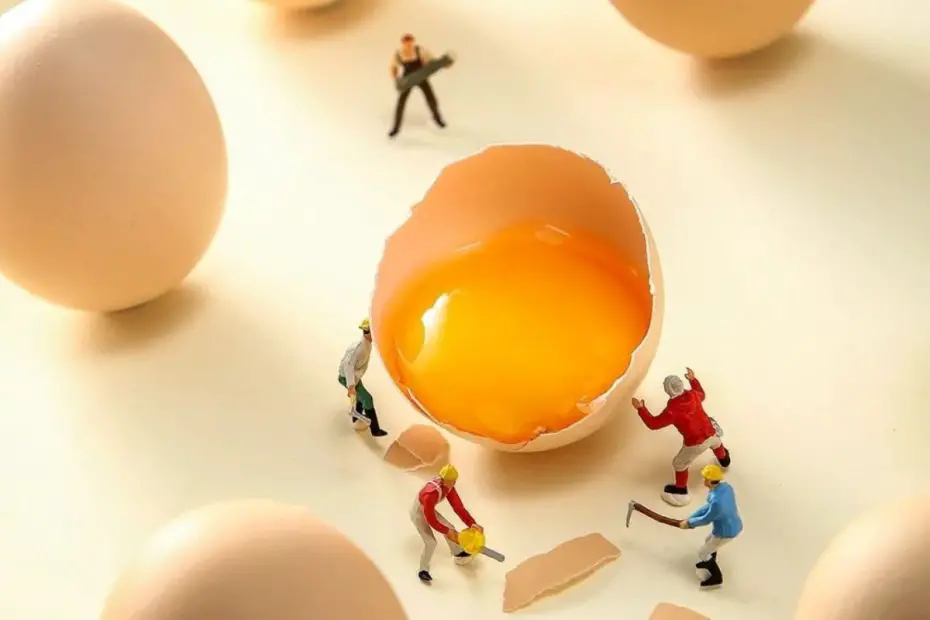As a Chinese myself, having grown up consuming copious amounts of eggs, today I will delve deep into the reasons behind this culinary preference and present them as follows:
- Eggs are a versatile ingredient that can be used in a variety of dishes. From stir-fries to soups, eggs can be easily incorporated into any meal.
- Eggs are a good source of protein. This is especially important in China, where many people do not eat meat on a regular basis.
- Eggs just taste good! They add a richness and depth of flavor to dishes that is hard to replicate with other ingredients.
- The Chinese government has a close eye on keeping the price of eggs relatively low to ensure everyone in China has access to an inexpensive source of protein.
- The shape of an egg also represents fullness and completeness, qualities that you cannot have too much of in your life. Thus, it is of importance for eggs to be served to guests during an important birthday.
How Do Chinese Eat Eggs?
There are many different types of Chinese eggs but the last one you are going to read is quite SHOCKING.
Plain Boiled Eggs-水煮蛋
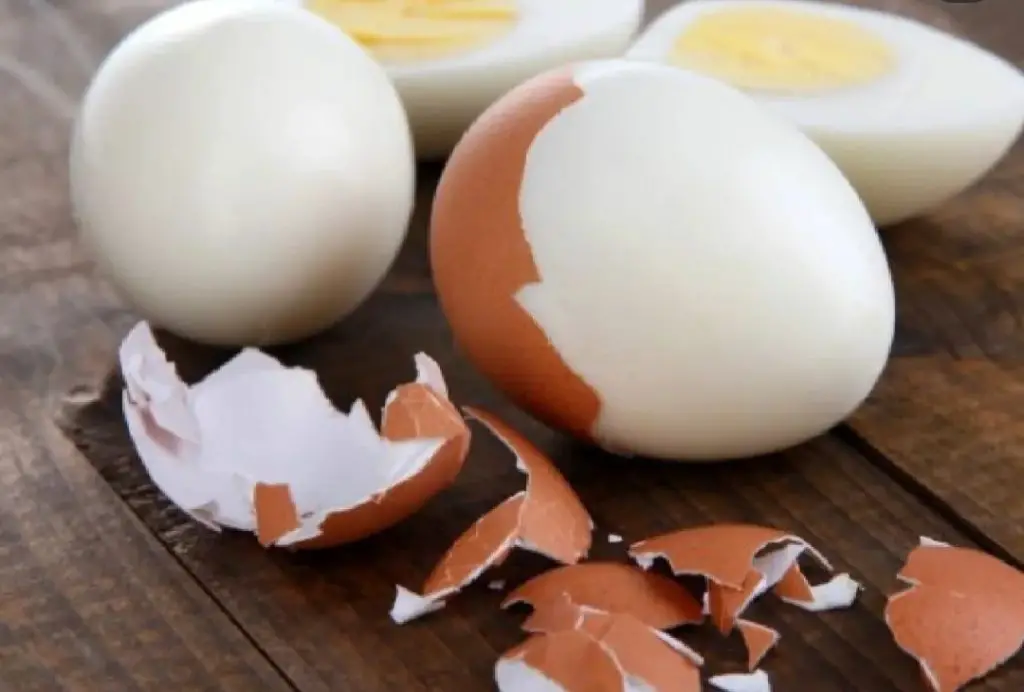
In China, boiled eggs (水煮蛋, shuǐ zhǔ dàn)are often eaten as a snack or as part of a larger meal.
They can be eaten plain, with a sprinkle of salt or with a dipping soybean sauce.
They are a popular breakfast food, often served with rice porridge or steamed buns.
Chinese breakfast is not just about eggs, there are 16 kinds at least for you to try! 😍
Tea Eggs-茶叶蛋
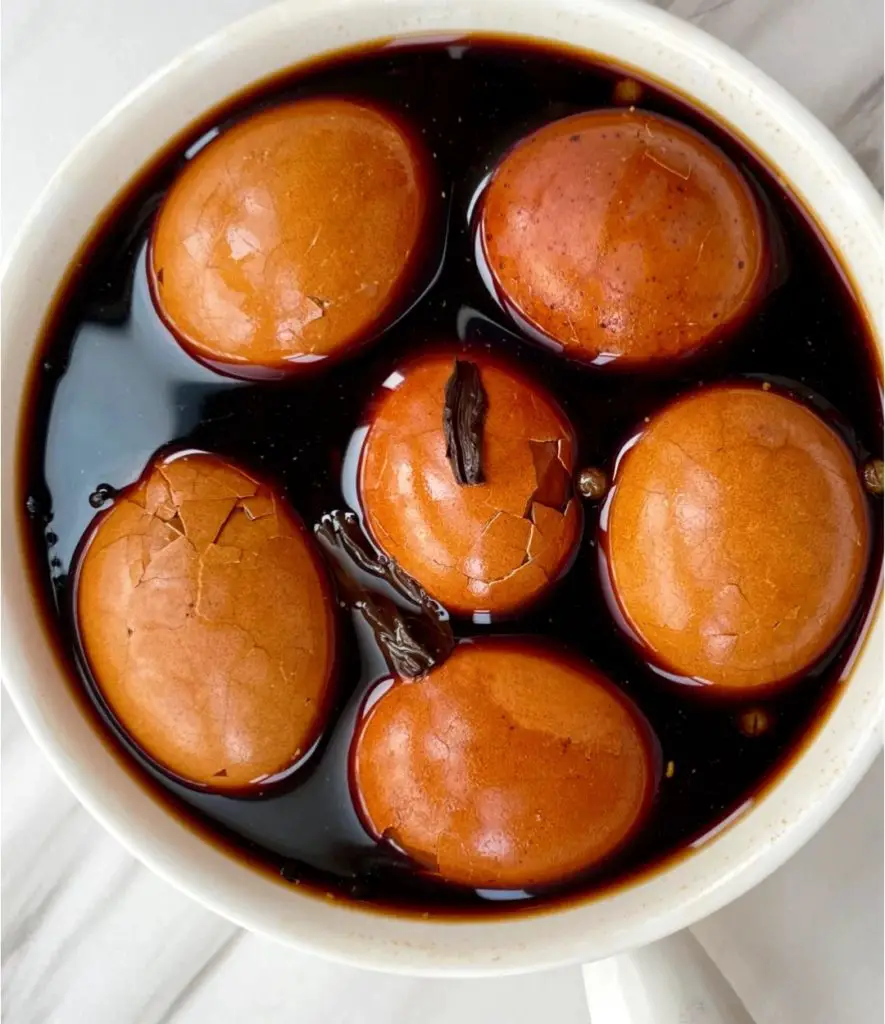
Chinese people often like to eat ordinary boiled eggs as a quick snack.
But at many shops and food stands, you’ll often see eggs boiling in a dark brown broth. These are tea eggs (茶叶蛋, cháyè dàn), or marbled eggs.
Already-boiled eggs have their shell cracked slightly before being re-simmered in a tea-based broth with additional spices, creating darkened lines with marble-like patterns.
It’s probably the most famous of all Chinese egg preparation methods, and you may have seen it in Asian restaurants or at Chinatowns near you.
Lucky Red Eggs-红鸡蛋
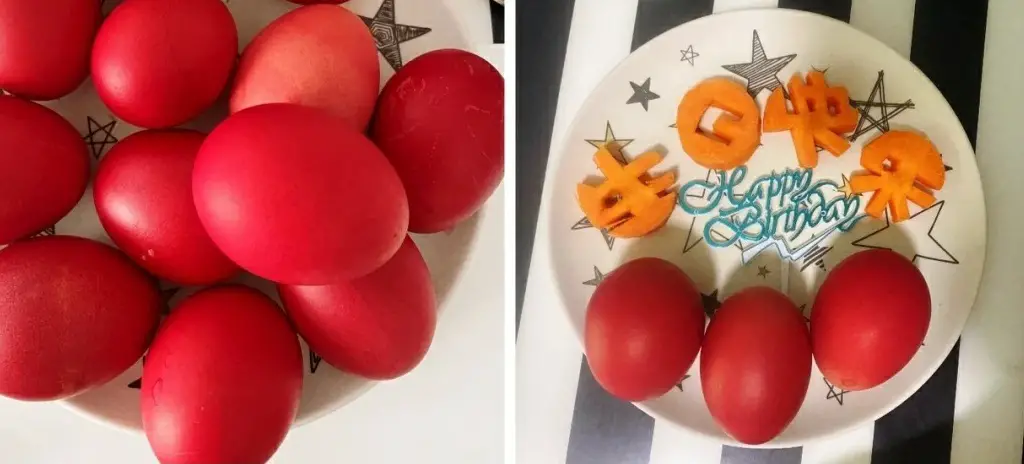
Next, lucky red eggs (红鸡蛋, hóng jīdàn). Although these are not actually everywhere in China, a lot of foreigners know about red eggs.
Sort of similar to Easter eggs, they symbolize birth or a new start.
It is a tradition in Chinese culture to hold a red egg and ginger party to celebrate a baby’s first birthday, where the baby’s name is typically announced to friends and family.
Additionally, red eggs are also given as gifts to adult friends and family members on their birthdays.
Fried Eggs-煎蛋

Chinese people do also enjoy a good old-fashioned fried eggs (炒蛋, chǎo dàn). But unlike Westerners, they will fry the hell out of it.
Chinese restaurants usually serve well-done fried eggs that have a golden crust underside.
Fried eggs are often used on top of rice.
I had it for breakfast often in my high school time.
Poached Eggs-荷包蛋
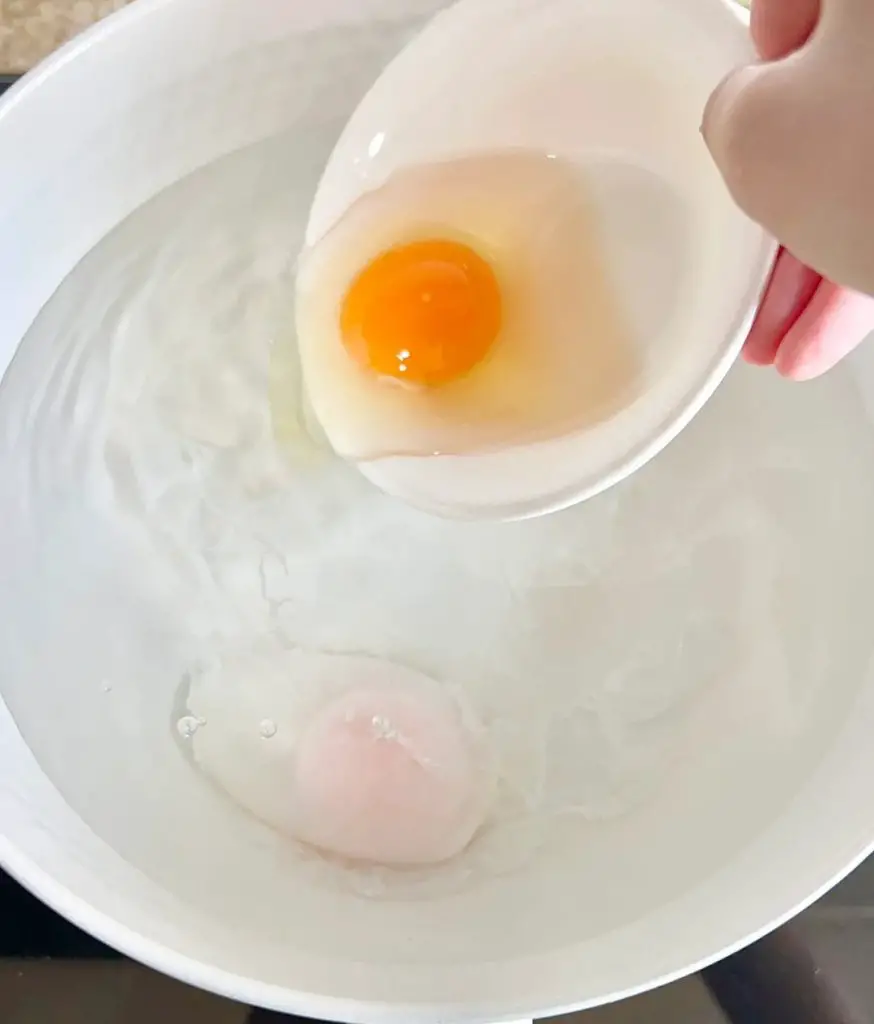
An exception to this need to thoroughly cook an egg is in some Cantonese dishes, where an egg is cracked over the hot food right at the end.
For example, Cantonese Ground Beef Rice and Eggs. This is known as wō dàn (窝蛋), literally “nest egg”.
The process of wōing an egg involves cracking it directly into soups and other hot dishes, poaching it without breaking the yolk.
We make it with instant noodles often.
Century Eggs-皮蛋
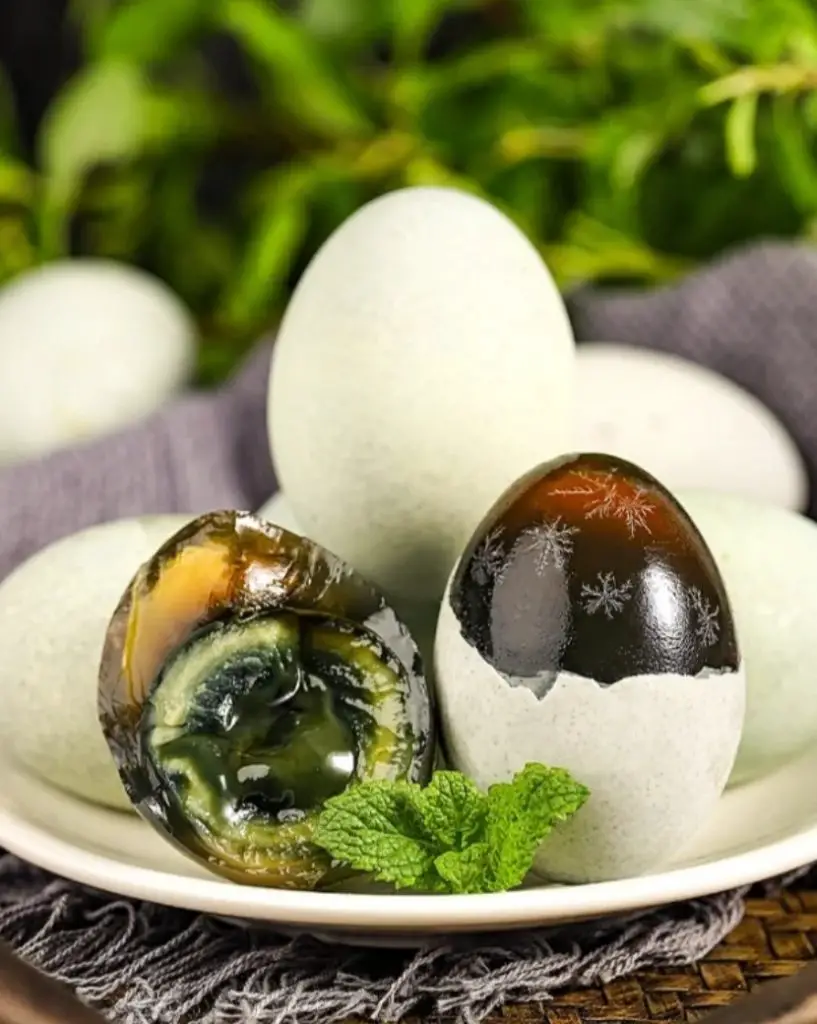
Century eggs (皮蛋, pídàn) are a kind of unconventional way of preparing eggs.
When sold in shops, they look like furry dino-eggs, but when you break into them the egg white is translucent-green and the yolk is a deep grey.
It has an overwhelmingly umami flavor and so is usually paired or cooked with other foods, like the century egg rice porridge with chicken.
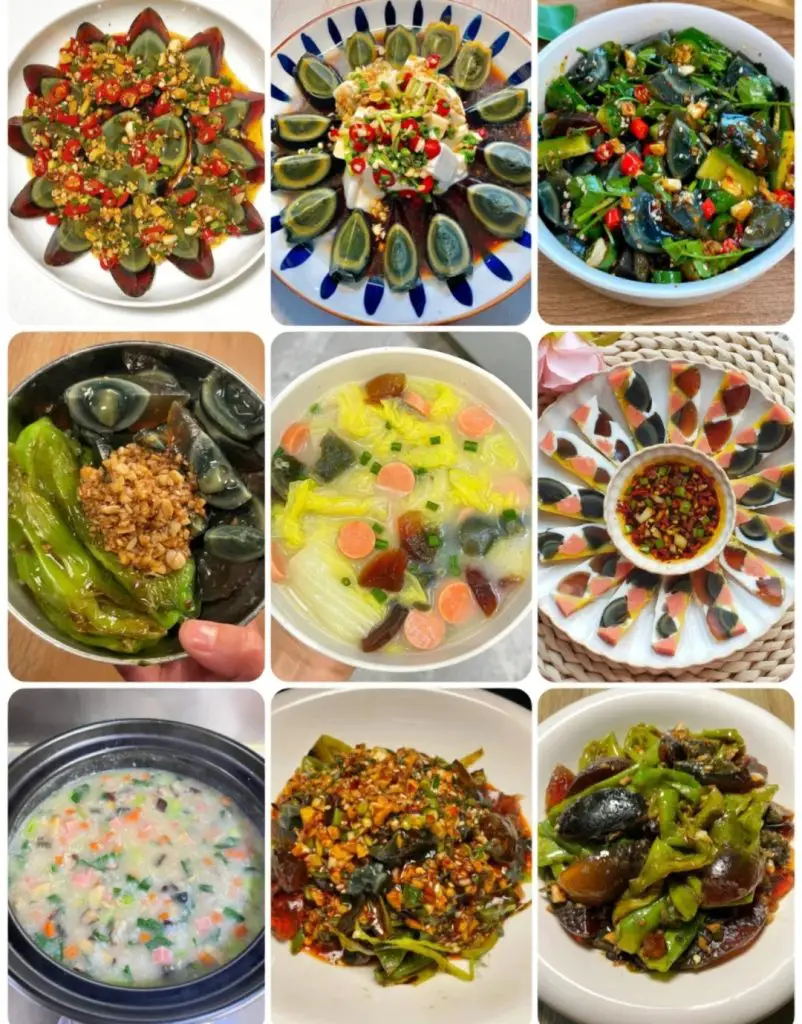
Duck Eggs-咸鸭蛋
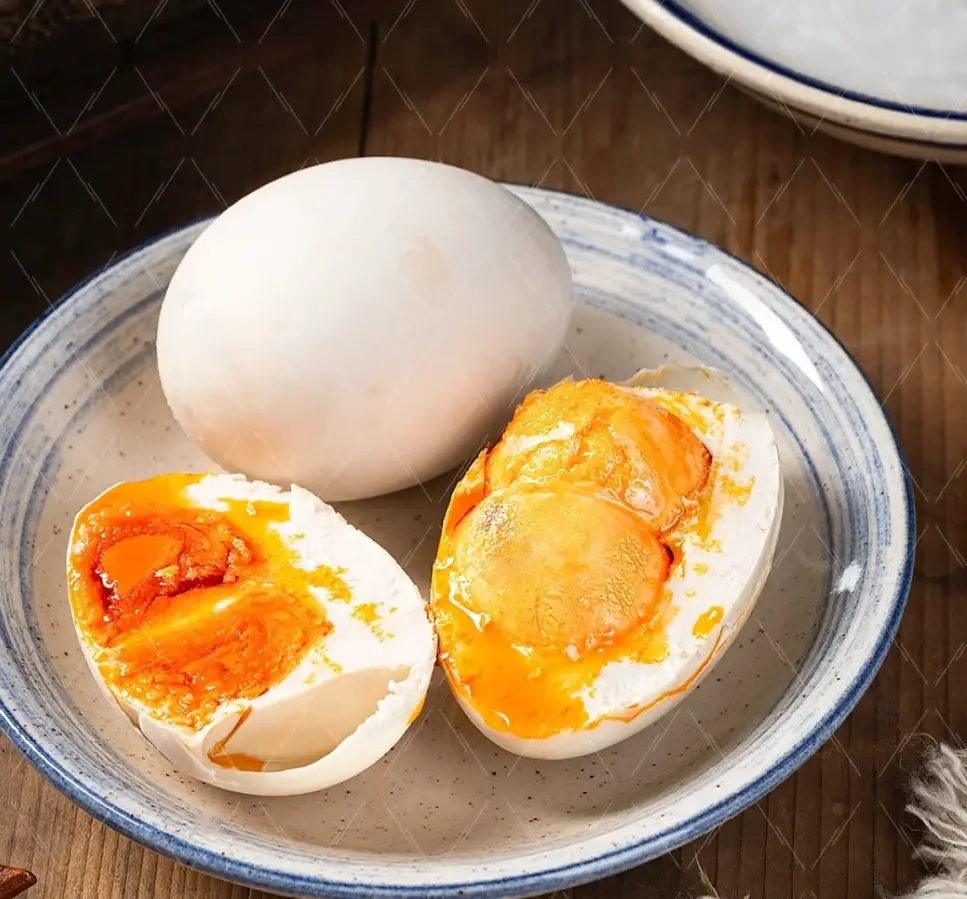
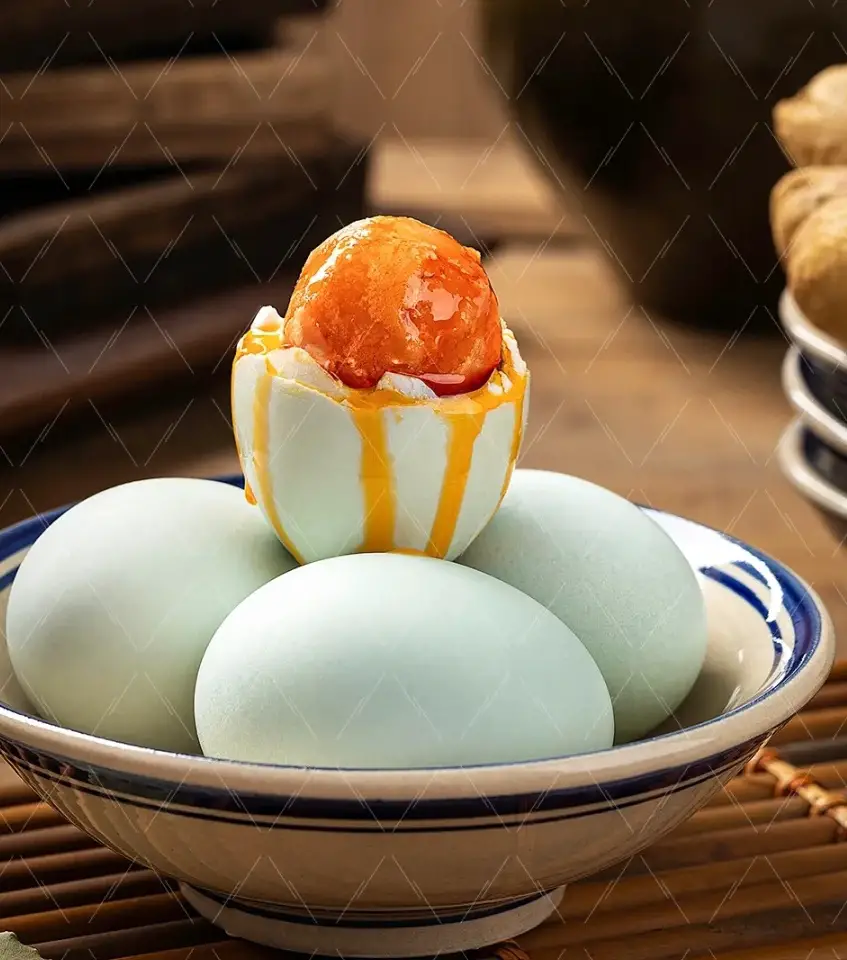
Duck eggs (鸭蛋, yādàn), the slightly larger ones which often have a blue shell, are also widely consumed.
One ultra-traditional Chinese way of eating them is after a process of preserving them by soaking them in brine or packing them in charcoal.
This makes them super salty and briny like a strong cheese. Rather than being eaten whole, they might be eaten as a condiment, like the century egg.
Once boiled, their texture is quite similar to hard-boiled chicken eggs, with a tougher yolk that oozes orangey oil.
To the surprise of some Westerners at Mid-Autumn Festival, the prized yolk of a salted duck egg (咸鸭蛋, xián yādàn) can be found lurking in mooncakes.

“咸蛋黄鸡翅” is a Chinese dish that consists of chicken wings marinated in a savory, salty duck egg yolk sauce. The dish is a popular menu item at many Chinese restaurants in Shanghai.
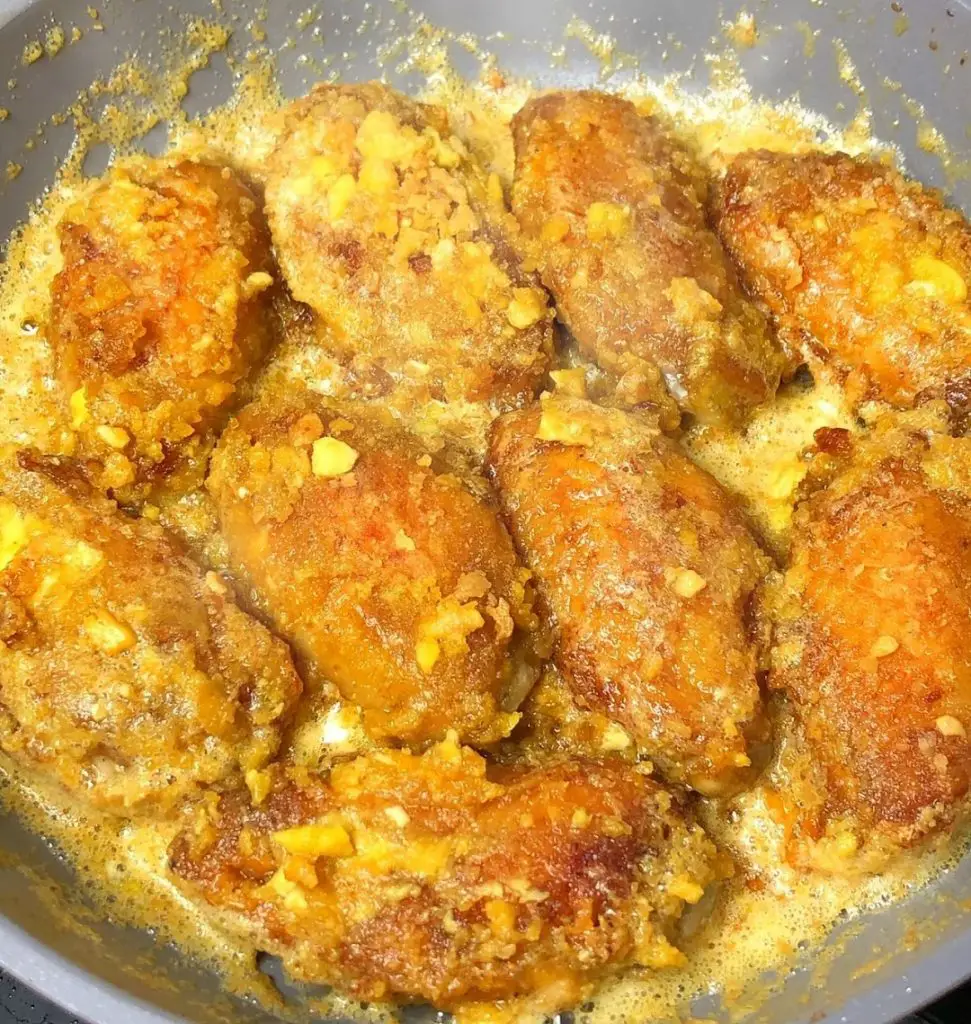
Quail Eggs-鹌鹑蛋
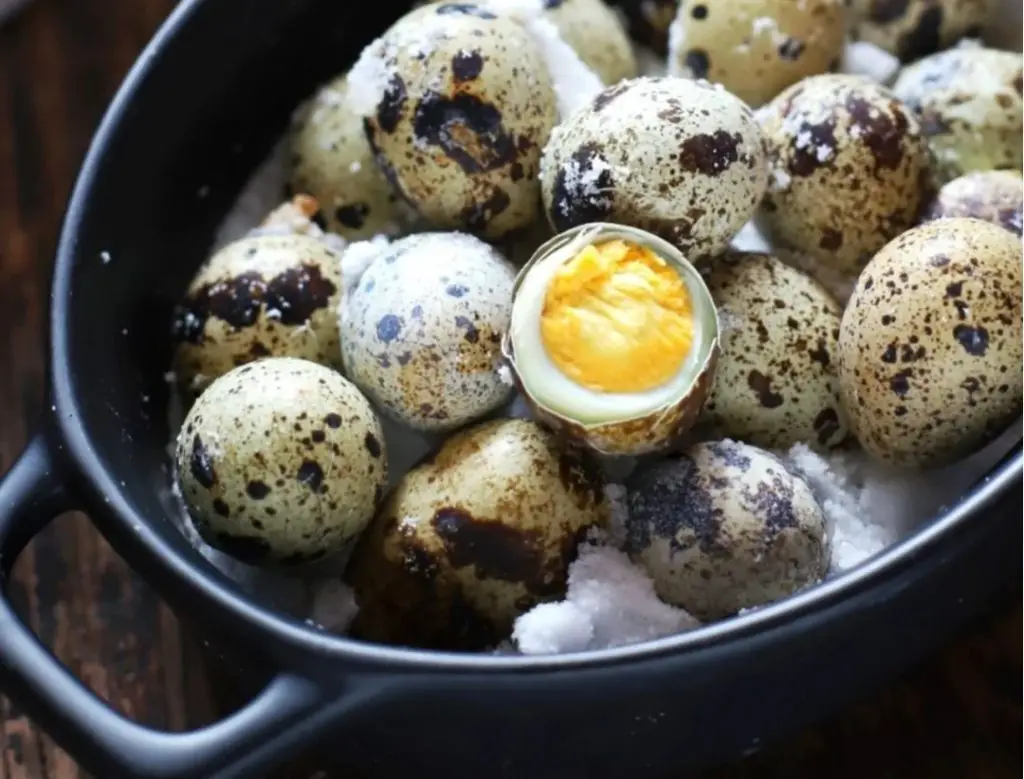
Quails’ eggs (鹌鹑蛋, Ānchún dàn) are also peculiarly known as “the ginseng of animals”.
Boiled, they are a popular chuàn (串) item: skewered on bamboo sticks and dunked into a hot spicy broth.
Peeled, boiled, and canned, they are also commonly used in hot pot and dry pot.
They are also a popular train ride snack – mini quails’ egg cookers actually exist and you can buy them on Amazon.
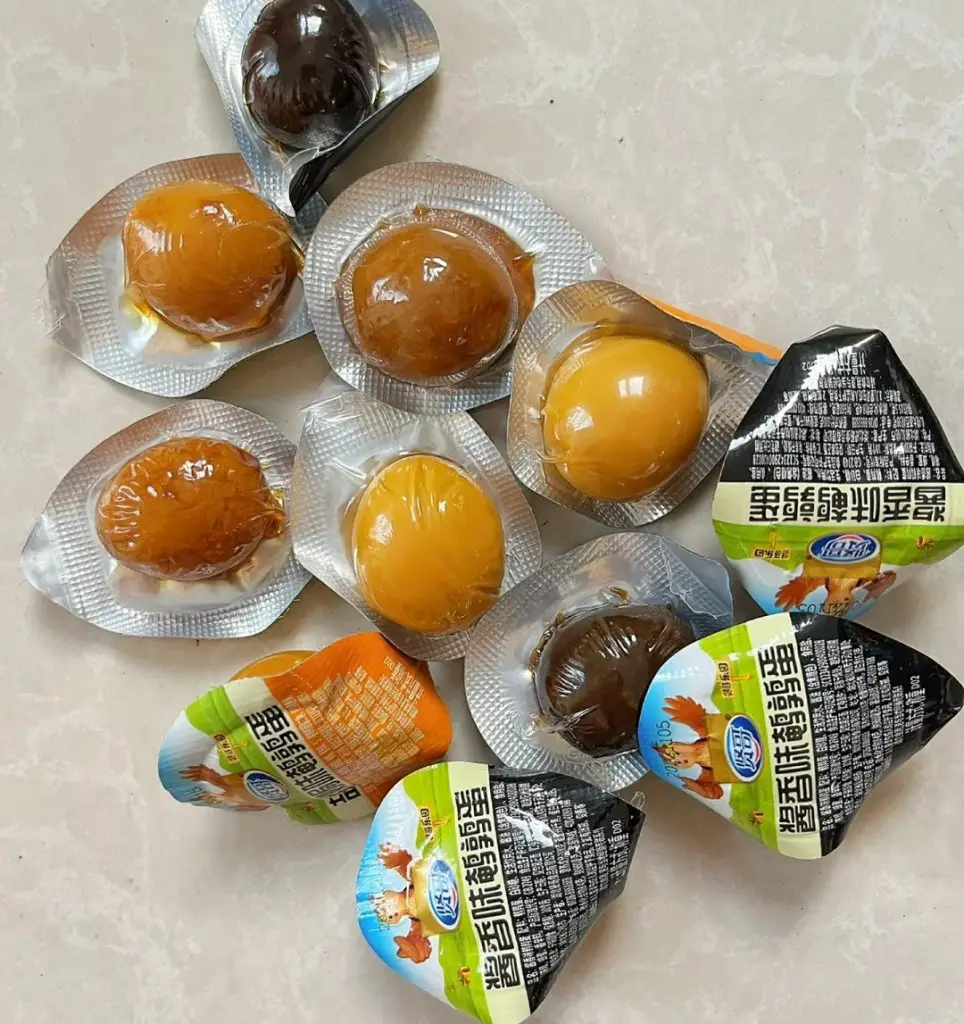
Steamed Eggs-蒸蛋
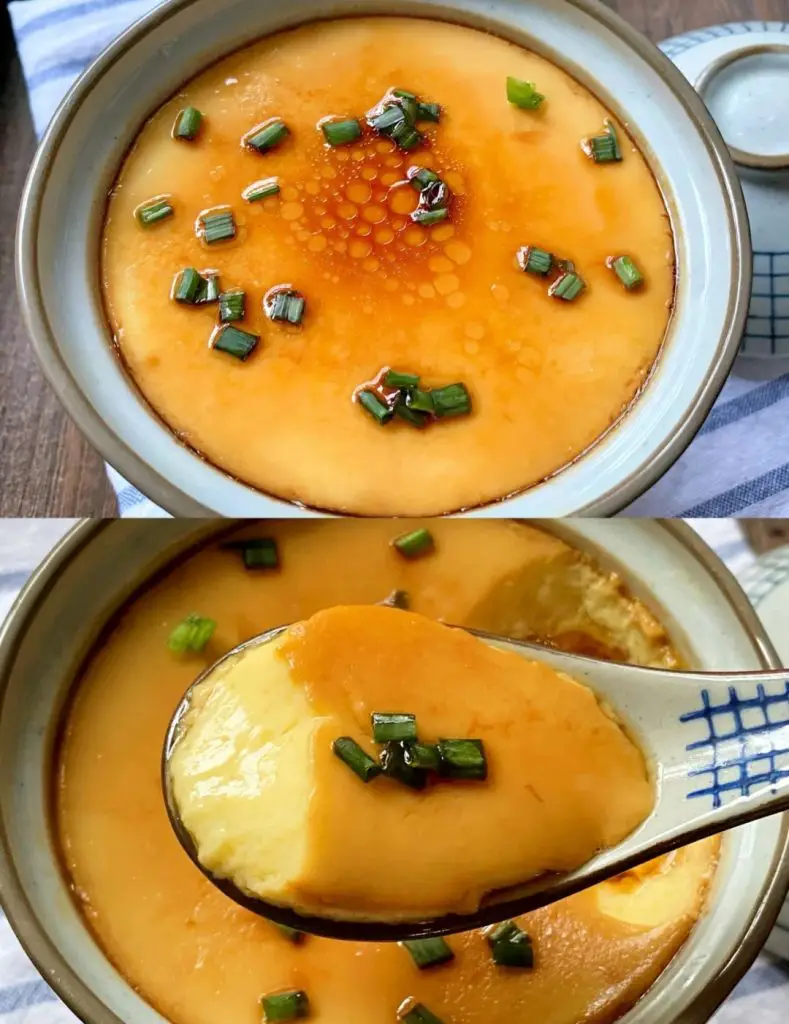
Steamed eggs (蒸蛋, zhēng dàn) also known as “silken tofu” or “water egg” in Chinese, are a popular and simple dish to make.
It is made by whisking together eggs, water or broth, and a small amount of seasonings, such as salt, soy sauce, or sesame oil.
It is then steamed for 5-8 minutes until the eggs are set but still soft and custard-like.
Steamed eggs are often served with soy sauce or a savory broth.
I had it for dinner often when I was a kid.
Urine Eggs-童子蛋
If you visit China’s Zhejiang province during the Spring, you may come across vendors selling a unique and popular snack among the locals called “urine-soaked eggs” also known as virgin boy eggs.
This delicacy has been a tradition for decades, with vendors carefully preparing the eggs to maintain their fresh and salty flavor.
How Is It Prepared?
- The key ingredient for this recipe is collected from buckets full of boy’s urine.
- The eggs are soaked in the urine of young boys, typically under the age of 10.
- There is no clear explanation for why it has to be boy’s urine or why the boys have to be virgins. It is simply a tradition.
- The eggs are soaked overnight, then boiled in a pot full of urine.
- After boiling, the eggshells are cracked and left to simmer in urine for a few more hours, which is why they have a marbleized appearance.
How Does It Taste?
The white part of the egg tastes salty as the soaking process hits the surface directly, while the yolk tastes like every other yolk of any hard-boiled egg.
Why Do People In Dong Yang, Zhe Jiang Province Eat Virgin Boy Eggs?
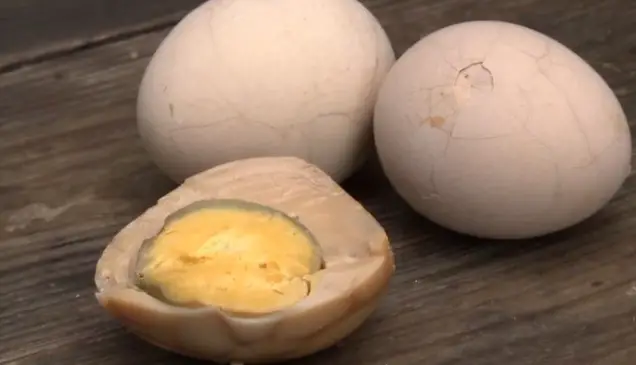
- The tradition of eating “virgin boy urine eggs” is rooted in local culture and history.
- The tradition is passed down through generations, often with the belief that it has certain health benefits.
- Some people believe that the eggs can decrease body heat, promote blood circulation, and re-energize the whole body.
- Some people also claim that the eggs can provide relief from pain in the waist, legs, and joints.
It is important to note that there is no scientific evidence that support that consuming urine as a healthy practice.
The records in the “Bencao Gangmu” (Compendium of Materia Medica): The smell of boy’s urine is salty, cold, and non-toxic, often used to treat cold and fever headaches, and symptoms of evil heat.
Where Does The Urine Get Sourced From?

Vendors give buckets to schools, encouraging young boys to pee in them rather than using toilets.
What’s The Price Of The Egg?
It’s 2 yuan. (0.3USD)
Do Chinese Love Virgin Eggs?
Chinese medical experts do not have positive views about the practice of consuming urine eggs, and have warned about the sanitary issues involved in preparing them.
Most people find the practice of eating urine eggs unappetizing and consider it to be unhygienic.
Final Words:
Remember you will not find the eggs across whole China, but only in Zhejiang province in the Springtime.
Frequently Asked Questions:
Let’s learn more from other’s questions about eggs in China.
What nationality eats the most eggs?
According to the United Nations Food and Agriculture Organization (FAO), the top countries that consume the most eggs per capita are:
- Japan: 315 eggs per person per year.
- China: 276 eggs per person per year.
- South Korea: 255 eggs per person per year.
These numbers are based on data from 2018 and it’s important to note that it may change over time.
It’s important to note that these numbers are per capita and not per person, meaning that these numbers take into account the entire population including children, elderly and non-egg eaters.
Are eggs a delicacy in China?
Eggs are not a delicacy in China.
But Century egg” or “thousand-year-old egg” which are made from preserving duck, chicken or quail eggs in a mixture of clay, ash, salt, and lime for several months.
These eggs are considered delicacies due to their unique flavor and texture.
Are eggs lucky in China?
Eggs are not considered lucky in China, but they do hold some symbolic significance in Chinese culture.
The shape of an egg is said to represent fullness and completeness, which are qualities that one cannot have too much of in life.
For this reason, eggs are often served to guests during important birthdays as a symbol of wishing for a full and complete life.
Do Chinese eat a lot of boiled eggs?
Yes, Chinese people do eat a lot of boiled eggs.
They are considered a popular and convenient food, and they are consumed in many different ways, as a snack, breakfast, ingredient in soups and hot pots, and also as a side dish.
